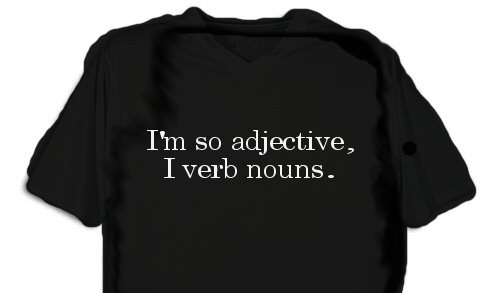Your cart is currently empty!

Adjectives at Your Website
Are adjectives bad news for your website content?
Some clients want to lard their text with adjectives, assuring visitors that their goods and services are the best, the greatest, and especially the most unique. Others want to avoid adjectives entirely, as though there were a law against adjectives on the internet.
Who’s right?
Neither, as is so often the case with extremes. Here are the questions to ask yourself when you start contemplating the use of adjectives in your web content:
- Are you bragging? On the web, in print, or in person, you’re less convincing if you’re exaggerating. Is your product actually unique? That means there isn’t anything else like it, a rare event. Is it actually the best? Can you prove it? Use adjectives that actually describe your product or service in a meaningful way — your shingles may not be unique (your customers probably don’t even want unique shingles) but they may be slate, or durable, or guaranteed, or award-winning, and your customers would probably like to know that.
- Is anyone searching for those adjectives? I’m amazed by how many companies want to use the word “unique” as a keyword. Now imagine yourself searching for a new bike helmet or saxophone or allergy medication. You sit down at the computer, bring up your favorite search engine, and type in… Not “unique.” In fact, just about the only time people search for “unique” is in the phrase “unique gift.” Are you selling unique gifts? If not, give that word up. But do check — lots of people look for “quality roofing,” and expression in which “quality” functions as an adjective. And “romantic getaway” is popular, too. If an adjective is part of a bona fide keyword phrase for your business, you ought to use it.
- Do you have room? If your home page design only gives you 250 words to work with, you may not really have enough room for adjectives. Save them for an inner page where you have more space.
by
Tags:

Leave a Reply